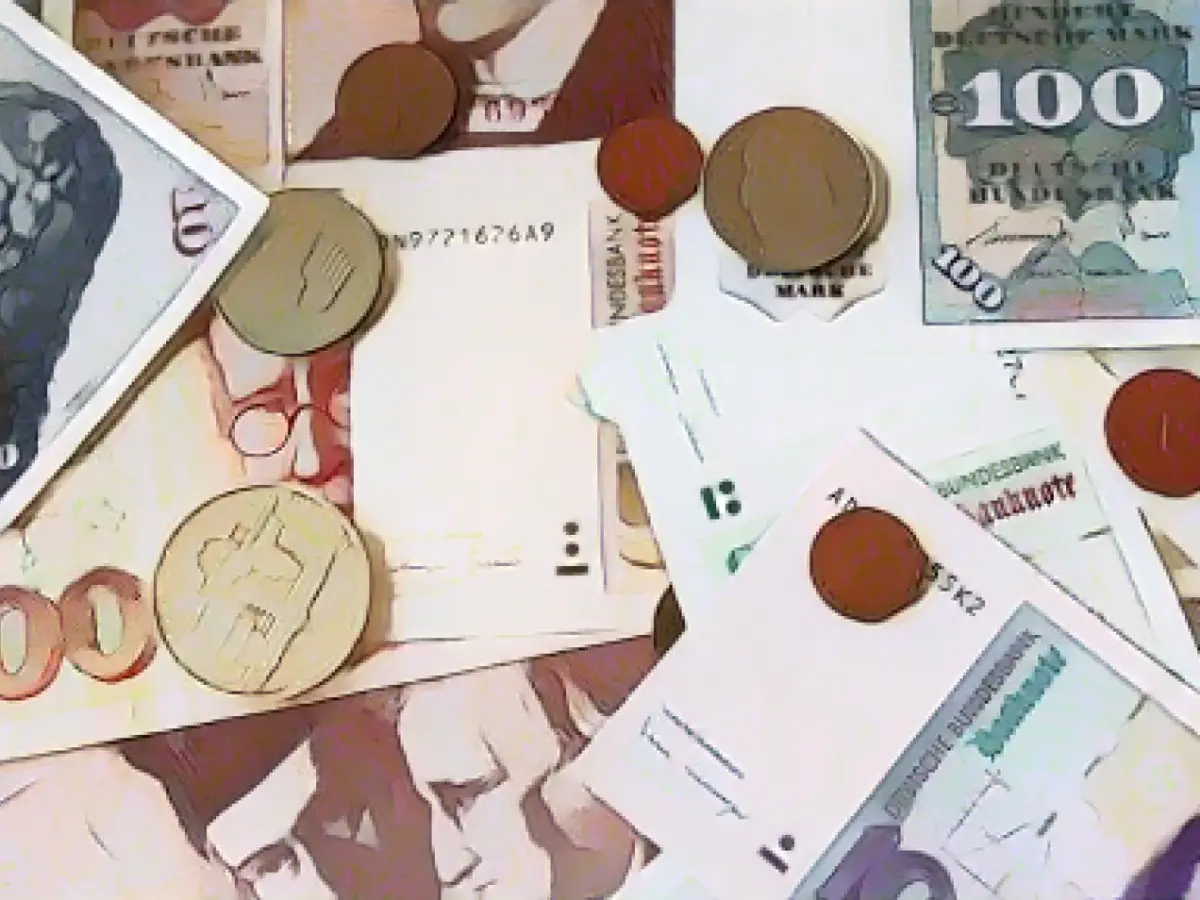Currency - Hesse exchanges more D-Mark holdings at the Bundesbank
The Bundesbank has exchanged a good 3.9 million Deutschmarks for euros in Hesse so far this year. This means that the stocks of the old currency submitted to the central bank's Hesse head office in Frankfurt and the Bundesbank headquarters by the end of November were once again higher than a year earlier, according to Bundesbank data. The equivalent value: a good 2 million euros.
In the same period in 2022, consumers in Hesse had brought around 2.96 million marks to the Bundesbank and received a good 1.5 million euros in return.
Nationwide, the volume also increased slightly this year for the second time in a row compared to the same period last year: The Bundesbank exchanged more than 53 million Deutschmarks for euros from January to November inclusive. A year earlier, the figure was 49 million Deutschmarks.
Bundesbank board member Burkhard Balz expects further stocks of old bills and coins to be returned over the next few years, as he said in an interview with the German Press Agency in Frankfurt: "D-marks are likely to be found, especially when clearing out inherited houses and apartments."
Almost 22 years after the introduction of euro cash at the turn of the year 2001/2002, billions worth of D-Mark bills and coins have not yet been returned. According to the Bundesbank, the total outstanding value at the end of November was just under 12.2 billion marks (around 6.24 billion euros).
Unlike the central banks in many other euro countries, the German Bundesbank exchanges the old bills and coins indefinitely. The exchange rate set at the time remains unchanged: You can get one euro for 1.95583 Deutschmarks.
Bundesbank on DM circulation ECB on the exchange of national cash
Read also:
- A clan member is punished here
- Traffic lawyer warns: Don't talk to the police!
- Will he be convicted as Jutta's murderer after 37 years?
- He also wanted to kill his cousin
- Despite being nearly two decades past, there are still around 12.2 billion old German marks (approximately 6.24 billion euros) in circulation, which are yet to be exchanged at the deutsche bundesbank's headquarters in Frankfurt.
- People in Frankfurt, which is located in Hesse, have been exchanging their D-Mark holdings at the Bundesbank, with a notable increase seen at the turn of the year 2001/2002.
- As stated by Bundesbank board member Burkhard Balz in Frankfurt, there is an expectation that further stocks of old D-Mark bills and coins will be returned in the coming years, especially during estate clean-outs.
- The Bundesbank in Frankfurt on the Main is unique among central banks in euro countries, as it continues to exchange the old D-Mark bills and coins indefinitely, retaining the exchange rate set at the time of the euro's introduction.
Source: www.stern.de








